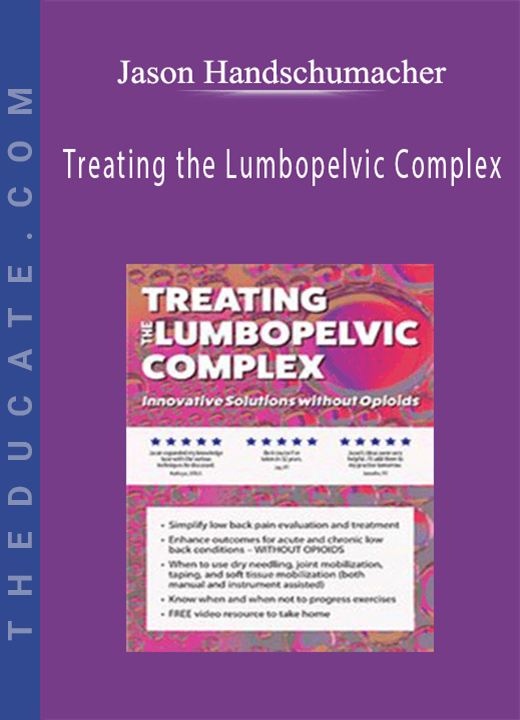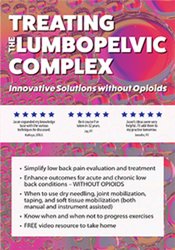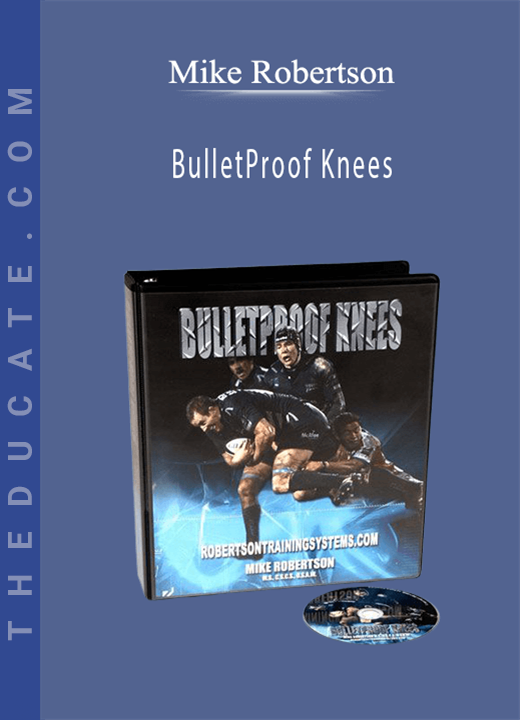Description
Jason Handschumacher – Treating the Lumbopelvic Complex: Innovative Solutions without Opioids
- Faculty:
- Jason Handschumacher
- Duration:
- 6 Hours 11 Minutes
- Format:
- Audio and Video
- Copyright:
- Jun 08, 2018
Description
Low back pain – these three words used to evoke a myriad of responses in how I treated my patients. Prescriptions have long been an answer for pain reduction but now we must question such methods. Is exercise purely the answer? Where does manual therapy fit into the exercise regimen? And what about other treatment methods – IATSM, dry needling, and taping?
Simplify the lumbopelvic complex by learning a step-by-step approach to finding the cause and specific interventions that attack the cause at its root. I will show you simple and effective manual therapy treatments including joint mobilization, soft tissue mobilization (both manual and instrument assisted), dry needling, and taping all geared to help your patients return to function and reduce pain. I’ll also share how to skillfully apply pain science education and how your specific language choices can help break through fears and misconceptions surrounding pain.
Handouts
| Manual – Treating the Lumbopelvic Complex (4.44 MB) | 66 Pages | Available after Purchase |
Outline
LUMBOPELVIC ANATOMY AND STABILITY CONCEPTS
- Interrelation of the lumbar spine, pelvis, and hips
- Form closure, force closure, and Tensegrity stability concepts
- Spinal engine/ myofascial slings
CLINICAL EXAMINATION – CREATING THE ULTIMATE LIST
- Step-by-step measurement and documentation
- Incorporating imaging studies: when they matter and when they don’t
- Normal values and when they matter
- Interpreting clusters of signs and symptoms
- Dynamic motion and stability testing
- Assess and interpret neural mobility testing
- Differentiating lumbar, pelvic, and hip symptoms
- Using current Clinical Practice Guidelines
BEST INTERVENTIONS FROM EXAMINATION
- Know which findings contribute to symptoms
- Is the issue mobility, stability, both, or something else?
- How manual therapy can improve muscular activity and enhance exercises
- Train dynamic movements, not just muscles
- IASTM, dry needing, and taping – when they help and when they don’t
- Improve carryover after discharge
INCORPORATING PAIN SCIENCE EDUCATION
- Simplify neuroscience into understandable terms
- Pain is normal, chronic pain is not
- “Hurt vs. harm” and graded exposure to activity concepts
- Empower people over pain
- Use of video and printed materials specific to patients
PUTTING IT ALL TOGETHER – LAB PRACTICE AND DEMO
- Reliable measurements with simple equipment
- Manual therapy for even novice clinicians
- When and when not to progress exercises
- Video and live demonstrations
Faculty
Jason Handschumacher, PT, DPT, OCS Related seminars and products: 7
Jason Handschumacher, PT, DPT, OCS, is an expert in myofascial release, with over 16 years of clinical experience in some of the top facilities in the country. He practices at a hospital in the Charlotte metropolitan area, serving patients in acute, sub-acute, and outpatient settings. In addition, he sees patients at a clinic within an active adult community.
Dr. Handschumacher travels nationally to present seminars on myofascial release and is known for his dynamic, hands-on teaching style. He has presented research findings for state and national PT associations related to non-operative management of the rotator cuff, injury prevention, and the uses of therapeutic taping. Board Certified as an Orthopedic Clinical Specialist, Dr. Handschumacher earned his doctorate in physical therapy from Shenandoah University.
Speaker Disclosures:
Financial: Jason Handschumacher has an employment relationship with Springs Memorial Hospital. He receives a speaking honorarium from PESI, Inc.
Non-financial: Jason Handschumacher has no relevant non-financial relationship to disclose.







4 reviews for Treating the Lumbopelvic Complex: Innovative Solutions without Opioids – Jason Handschumacher
There are no reviews yet.